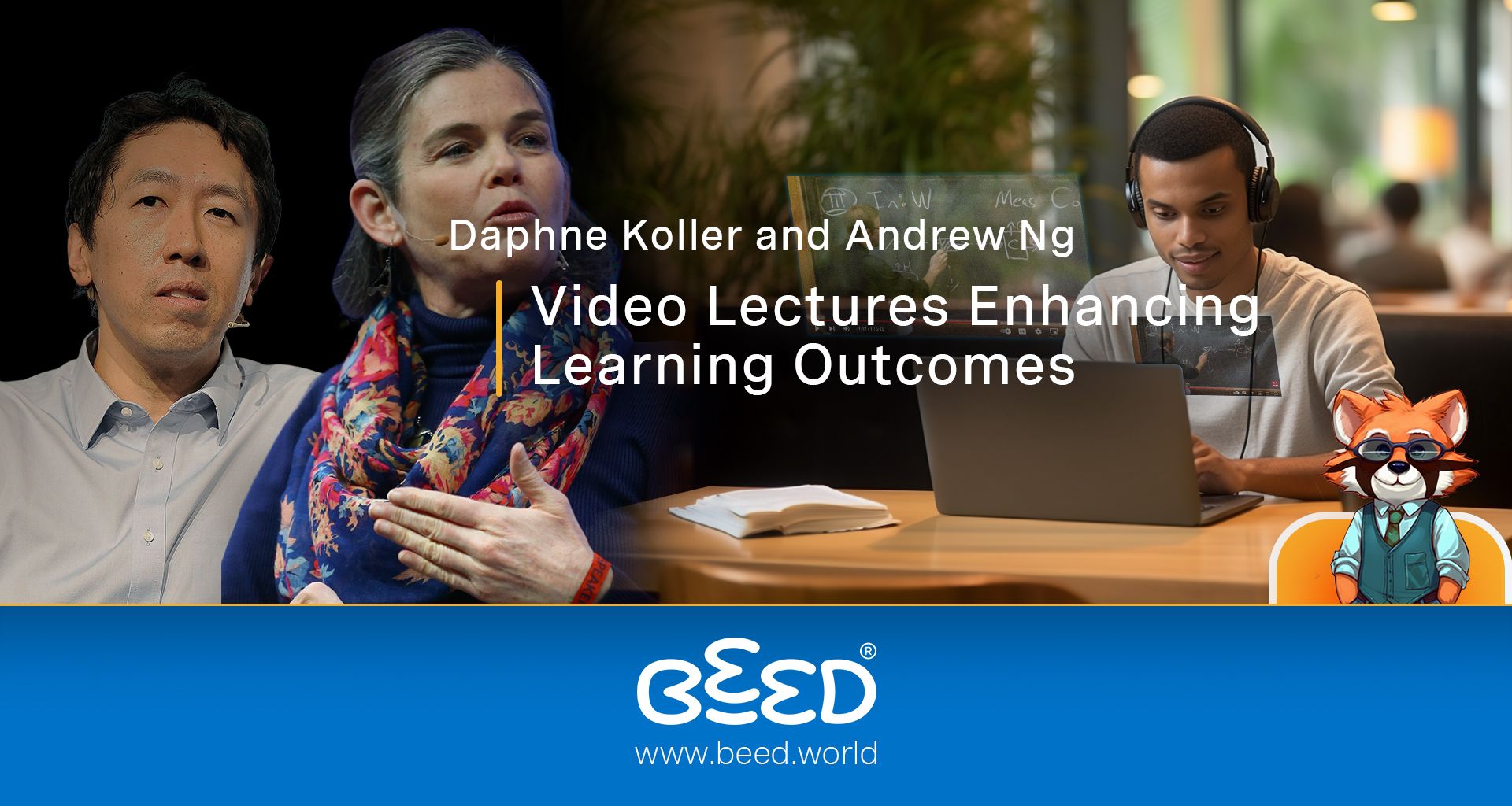The Use of Video Lectures to Improve Student Engagement and Learning Outcomes

Daphne Koller and Andrew Ng are two of the most prominent researchers and educators in the field of online learning. In 2012, they started one of the first and largest massive open online course (MOOC) platforms.
One of Koller and Ng's most important findings is that the use of video lectures can significantly improve student engagement and learning outcomes. In a 2013 study, they found that students who watched video lectures in their Coursera courses were more likely to complete the courses and had higher exam scores than students who did not watch video lectures.
There are several reasons why video lectures can be so effective for learning. First, they allow students to learn at their own pace and to rewatch sections of the lecture that they need more help with. Second, video lectures can be more engaging than traditional text-based readings, as they can incorporate visuals, audio, and even interactive elements. Third, video lectures can help students develop their listening and comprehension skills.
Koller and Ng's findings have had a significant impact on the educational industry. Many schools and universities now use video lectures in their online and in-person courses. Additionally, many online learning platforms now offer video lectures as a key component of their courses.
Here is a specific example of how the use of video lectures has improved student engagement and learning outcomes:
In 2013, the University of California, Berkeley offered a MOOC on machine learning on Coursera. The course was taught by Koller and Ng, and it was one of the most popular MOOCs ever offered.
The course included a number of video lectures, and students were required to watch the lectures in order to complete the course. In a survey of students who completed the course, 95% of students said that the video lectures were helpful for their learning. Additionally, 90% of students said that they would recommend the course to other students.
The success of the machine learning MOOC demonstrated the power of video lectures to improve student engagement and learning outcomes. The course showed that video lectures can be used to teach complex subjects to a large number of students in a way that is effective and engaging.
Koller and Ng's findings on the use of video lectures have had a profound impact on the educational industry. Video lectures are now an essential part of many online and in-person courses. Koller and Ng's work has helped to make education more accessible and affordable for students around the world.